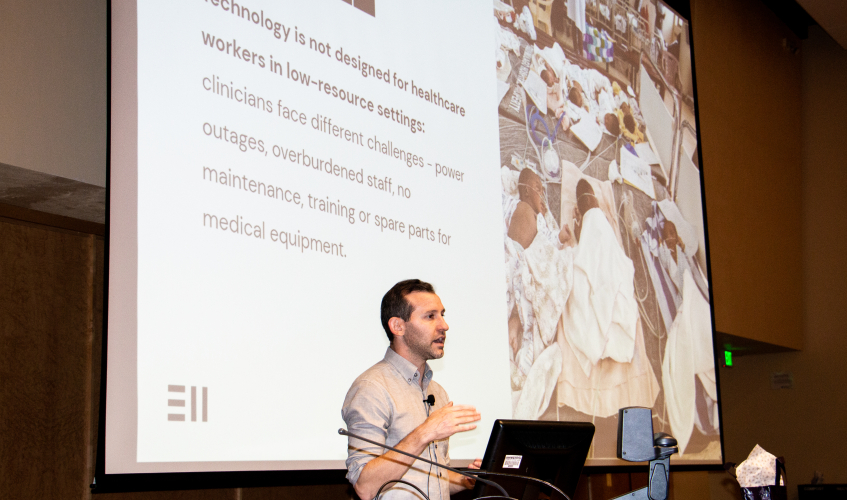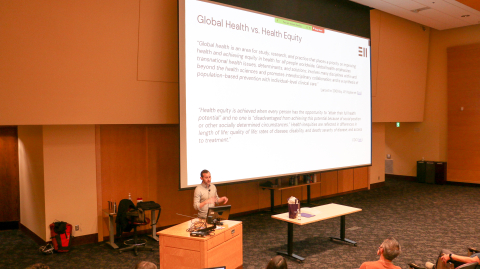Anh Nguyen & Angelita
November 2, 2022

Boston Nyer, interim CEO of Equalize Health (EH), recently spoke at the EIH quarterly speaker series, Leaders in Health Innovation, about challenges that health clinicians face in low- to middle-income countries, and his start-up's mission to design accessible medical devices for these communities.
Founded in 2007, formerly known as D-Rev, Equalize Health takes a human-centered approach to make medical devices for the world’s economically disadvantaged communities. The startup follows three guiding principles in its product development: be user-obsessed, be market-driven, and be world-class.
“We refuse to offer less-than,” Nyer said. “It must be world-class therapy because it’s health equity. We don’t want to offer less-than solutions [just] because people don’t have the same resources.”

the decolinization of the global health industry.
Audience member Caroline Kasman, a graduate student in Health Metrics Science, was delighted to hear Nyer’s focus on the decolonization of the global health industry.
“I valued how Boston discussed collaborating with a community to design a product from the ground up and be innovative rather than trying to adapt a product that already exists,” Kasman said.
Nyer spoke about EH’s key invention of the phototherapy lamp, Brilliance, which has treated over 1.4 million babies with jaundice in 79 countries. While jaundice is considered preventable in many parts of the United States, the disease is still one of the main causes of death among newborns in low- to middle-income countries. Nyer talked about his work in Uganda, where doctors have to place infants with jaundice next to windows so they can absorb UV rays from the sun. This practice is not the safest for infants, but doctors don’t have an alternative.
Inspired by the story, EH partnered with Phoenix Medical Systems, a leading neo-natal equipment manufacturer in India, to rethink how newborn babies in low-resource settings can receive phototherapy. The challenge is to not only design a device that is effective but also low-cost without negotiating its quality.
EIH is thrilled to have Boston Nyer kick off this year's Leaders in Health Innovation series, which focuses on key topics in health innovation and how UW engineering can remain at the leading edge of this important work.